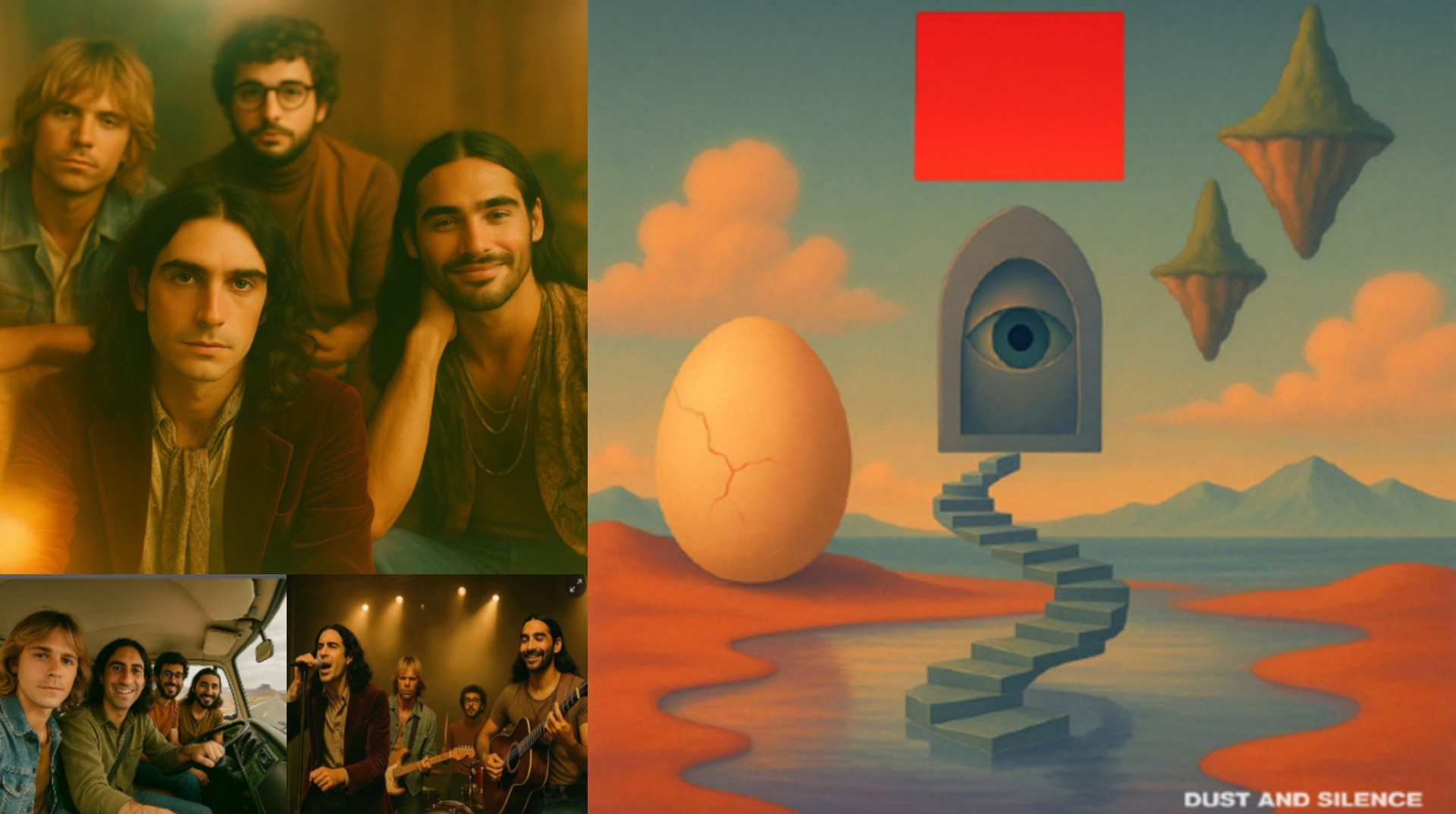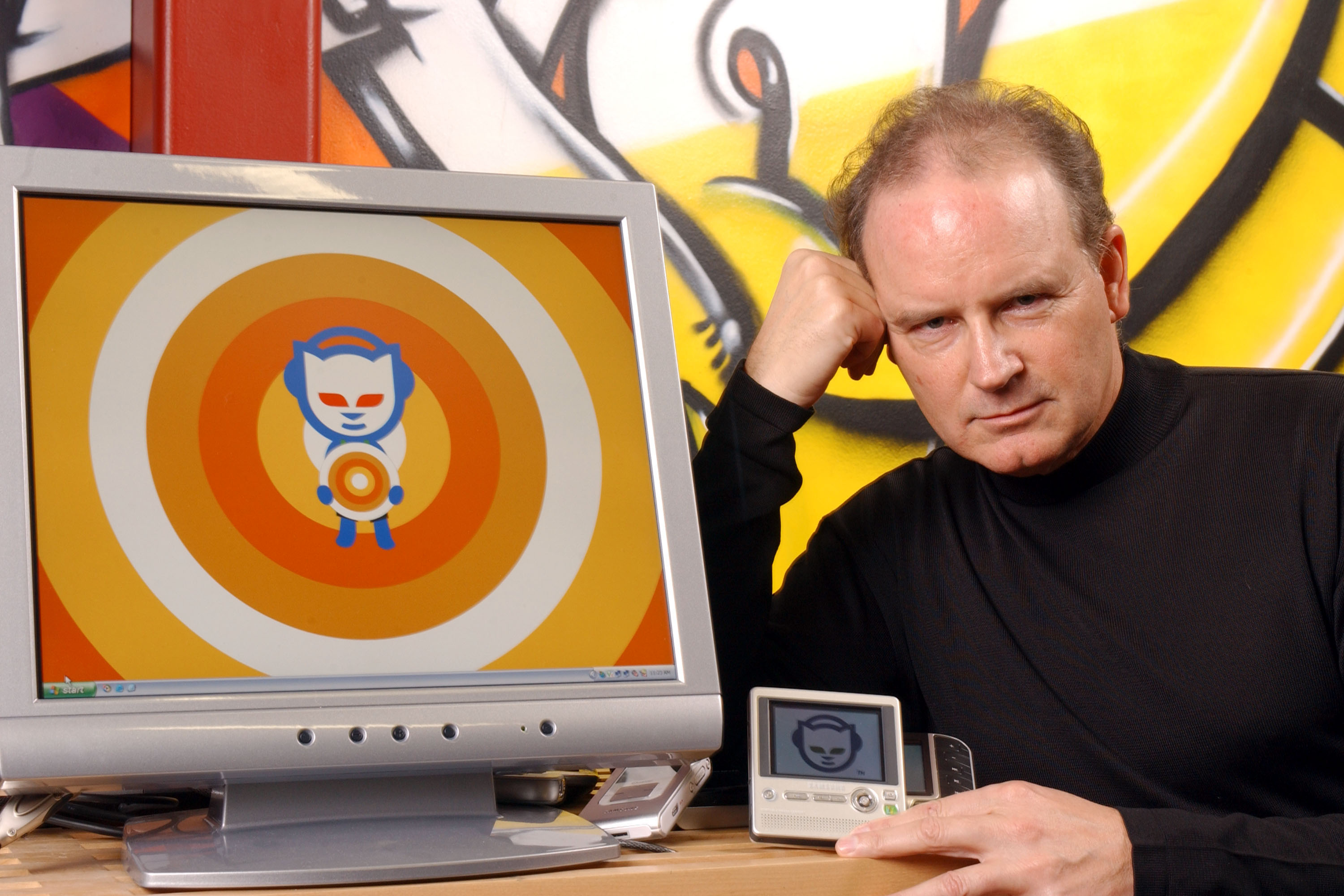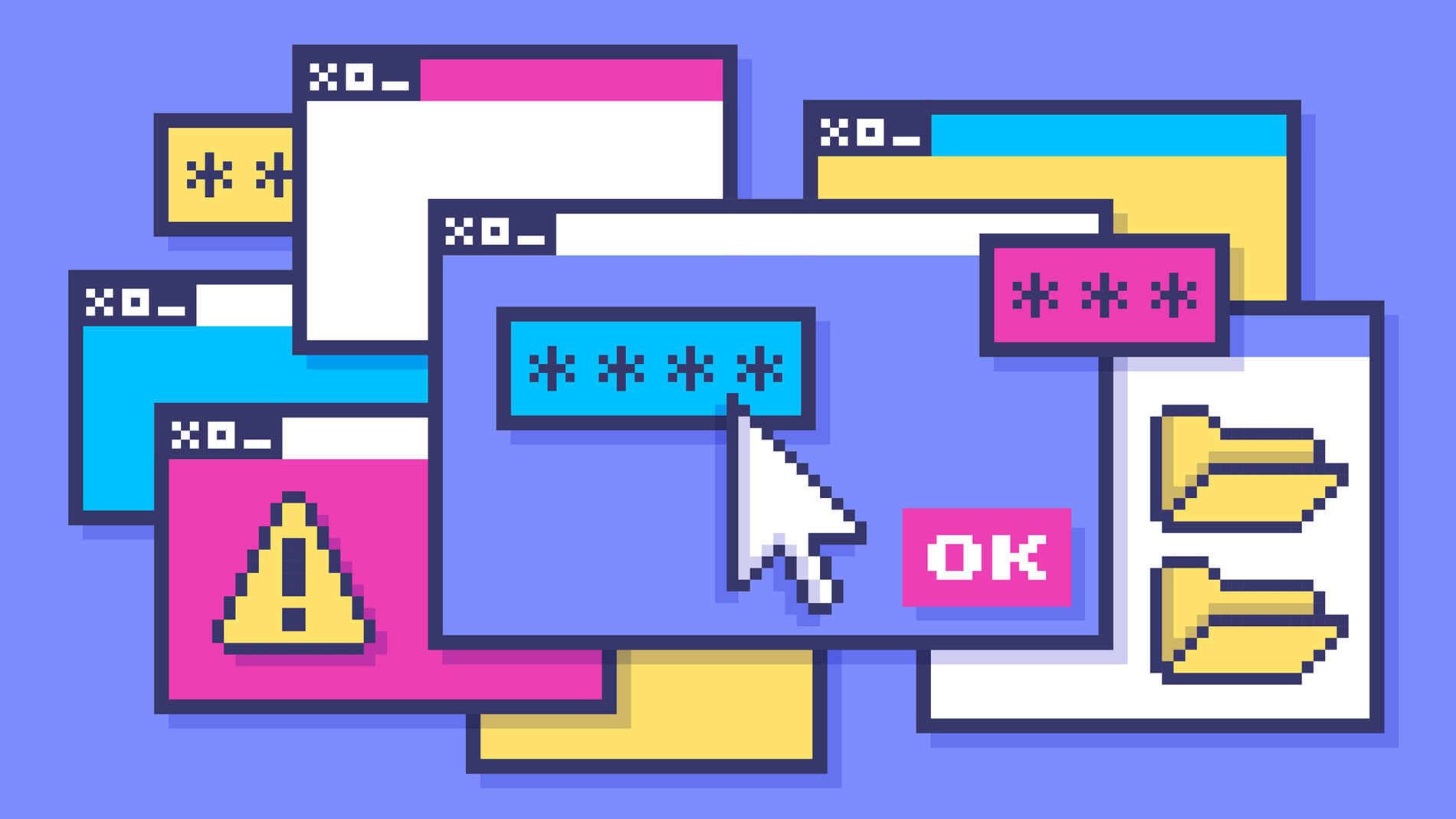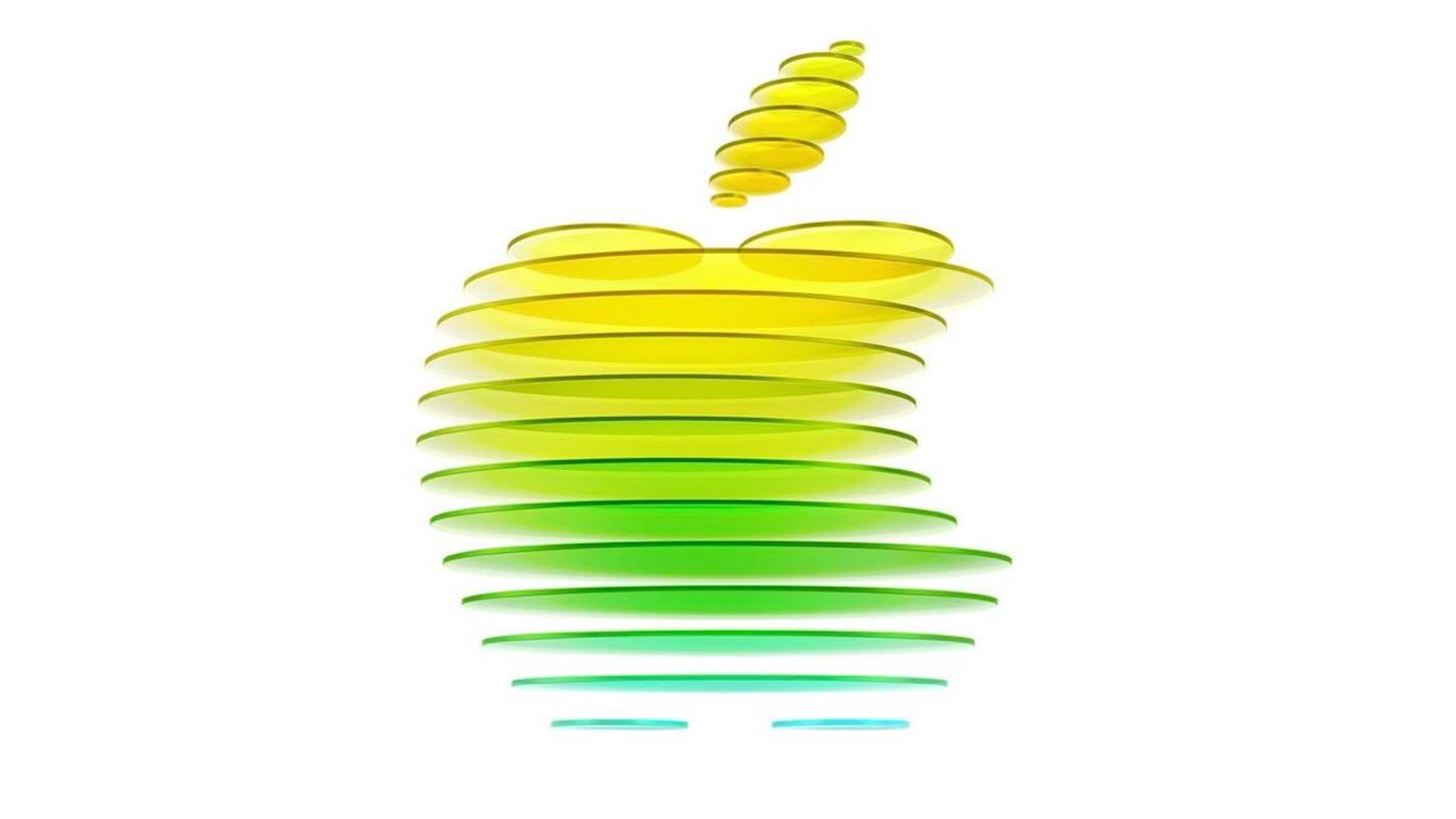
Sign up to Creative Bloq's daily newsletter, which brings you the latest news and inspiration from the worlds of art, design and technology.
You are now subscribed
Your newsletter sign-up was successful
Want to add more newsletters?
I'm sat here listening to The Velvet Sundown's haunting '70s-rock melodies, and I've got to admit, they're pretty darned good. The guitar work is crisp, the harmonies are spot-on, and there's something achingly nostalgic about their sound that reminds me of lazy Sunday afternoons with Crosby, Stills & Nash.
There's just one tiny problem: none of it's real.
The Velvet Sundown, who managed to rack up over a million streams on Spotify in mere weeks, were recently revealed to be entirely AI-generated. Not just the music; the promotional photos, the back story, even their mysterious "somewhere between human and machine" persona. They've even used retro fonts to evoke that nostalgic feeling. But it's all artificial, and frankly, it's freaking me out.
The great disruption, part two

Let's not mince words: this is a huge disruption to the music industry. Something which, to anyone of my age, may seem eerily familiar.
Back in the late '90s, a cheeky little internet service called Napster turned the music industry upside down. Suddenly, cash-strapped teenagers could download entire albums faster than you could say "Lars Ulrich lawsuit". Record shops shuttered, album sales plummeted, and the industry titans who'd grown fat on £15 CDs found themselves scrambling for survival.
It took a long time, but the music industry eventually adapted; largely by embracing streaming and focusing on touring. But now, just as the dust is settling, along comes AI to smash things up once more.
Only this time, it's not just disrupting how we consume music – it's questioning whether we need human musicians at all.
Sign up to Creative Bloq's daily newsletter, which brings you the latest news and inspiration from the worlds of art, design and technology.
The pattern repeats
I've seen this dance before, and it doesn't end well for the humans involved. Remember when the internet was supposed to democratise information and create endless opportunities for graphic designers?
Initially, it did. Suddenly, everyone needed websites, digital banners and online marketing materials. Print designers scrambled to learn HTML, and Photoshop became the new printing press.
But then something curious happened. As the internet matured, the demand for traditional design work began to erode. Why hire a designer for a simple website when templates existed? Why pay for one of the best logos when you could generate one online? The very technology that created opportunities started consuming them.

Now in 2025, AI is poised to finish what the internet started. Who needs website design when the need for websites themselves is being eroded by AI chatbots? Why commission an illustrator when you can prompt an AI to create something "in the style of" whatever takes your fancy?
In short, the entire creative industry is now facing its own Napster moment. Except this time the threat isn't just to the distribution model – it's to the very notion of human creativity having value. (See how AI is already impacting graphic design here.)
The authenticity crisis
The Velvet Sundown incident raises uncomfortable questions about authenticity and consumer choice that applies to all kinds of creative disciplines. For instance, when I'm streaming music, do I have a right to know whether it was created by a human or an algorithm?
A post shared by The Velvet Sundown (@thevelvetsundownband)
A photo posted by on
The music industry seems to think so, with calls for mandatory AI labelling on streaming platforms growing louder. But if AI-generated music is indistinguishable from human-created music, and if it moves us emotionally, does the source really matter? Are we clinging to human authenticity out of genuine preference, or simply because it's what we've always known?
The parallels between music and design are stark. Both rely on human creativity, emotional connection, and years of accumulated skill. Both now face AI systems that can replicate their output with frightening efficiency. Both are realising consumers might not care about the human touch as was once assumed.
Design agencies are already incorporating AI tools into their workflows, initially as assistants but increasingly as primary creators. The junior designer who once spent hours perfecting colour palettes can now generate dozens of options in minutes. The mid-level designer who crafted bespoke illustrations is watching AI create similar work from simple text prompts.
Meanwhile, the music industry's response to AI feels like watching someone try to hold back the tide with a teaspoon. Calls for legislation, demands for transparency and appeals to human creativity are admirable, but they're also probably futile. Technology doesn't care about our feelings, and consumers have repeatedly shown they'll choose convenience and cost over principle.
Is it all a hoax?
As I write this, I'm listening to the Velvet Sundown album again and I have to admit, I'm really enjoying it. In fact, my gut is telling me that maybe this is all a double-hoax; it's actually a real band and the whole "AI-generated" thing is just a clever marketing stunt. If so, hats off to them.
A post shared by The Velvet Sundown (@thevelvetsundownband)
A photo posted by on
Even if that's the case, though, I don't think it changes anything. We already know AI is good at making music. And given that most people just want something ambient and unchallenging on in the background, it's perfectly suited to step into that role; without all the hassle and cost of hiring actual humans.
So just as the recording industry eventually had to embrace streaming despite initial resistance, I believe the creative industries will likely have to find ways to coexist with AI rather than eliminate it. The question isn't whether AI will transform these sectors; it's how quickly and how completely.
The Velvet Sundown may have fooled a million listeners, but they've also given us a glimpse of a future where human creativity becomes increasingly optional. And that, frankly, is even more unsettling than learning your favourite musicians are digital ghosts.
Find out here what kind of AI a long-term designer actually wants to help their process, rather than replace it.

Tom May is an award-winning journalist specialising in art, design, photography and technology. His latest book, The 50 Greatest Designers (Arcturus Publishing), was published this June. He's also author of Great TED Talks: Creativity (Pavilion Books). Tom was previously editor of Professional Photography magazine, associate editor at Creative Bloq, and deputy editor at net magazine.
You must confirm your public display name before commenting
Please logout and then login again, you will then be prompted to enter your display name.
